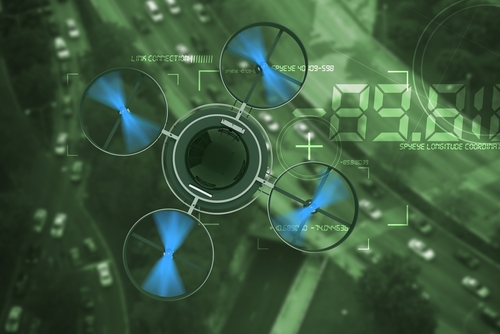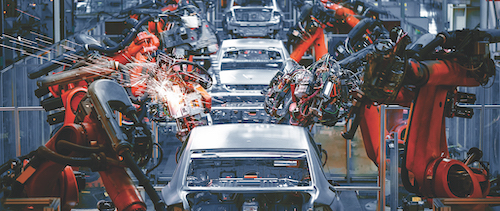The industry of robotics will change the world of taxation. And it will inevitably lead to an overhaul of welfare systems, the other side of the tax coin.
There are two particular challenges posed by the spread of robotics/AI. First, this kind of automation will do away with vast numbers of jobs at the lower end of the jobs market - and this creates a challenge for states which raise most of their taxes on the earnings of individuals. In theory, governments could simply increase their tax rates on the remainder of the population who are still in work - but such a simple solution would be a very blunt tool for a complex problem. Secondly, there is a high likelihood that the development of robotics/AI will put governments under more pressure to redistribute wealth around society - since it is highly unlikely that the economic benefits of this sector will be felt equally by all groups in society.
‘We don’t know the answer,’ says Richard Murphy of the Tax Justice Network and author of ‘The Joy of Tax’ when asked how the sector should be taxed. If the sector consisted entirely of robots which we could count (and tax), the issue would be far simpler. But AI/robotics come in many forms - including fast share trading and the clever systems which are replacing certain paralegal roles. More than that, traditional forms of ‘pricing and tax are going to be more difficult’, says Murphy, explaining that recent price falls around the world have made it harder to put an accurate (taxable) value on goods. And, since robotics will be replacing human labour, it will also become harder to measure the value of the labour ingredient in goods.
John Cullinane, policy director of the UK’s Chartered Institute of Taxation, says that the start of this kind of trend is currently feeding into the UK’s public finances. ‘You are already seeing tax receipts fall short,’ he says, pointing to an increase in more flexible, part-time workers at the expense of traditional, full-time jobs. ‘If these trends continue, there is going to be a tax receipts issue as well as an equality one.’
The current UK tax system - PAYE (Pay As You Earn), in which the vast majority of workers are taxed on their earnings through pay deductions - was built up in the 1940s and 1950s. But, 70 to 80 years later, that solid basis for state finance seems to be crumbling away at the edges. More people are moving into less lucrative forms of self-employment. Employers are less willing to take people on permanently because they believe that technology will soon cut their demand for staff. Self-employed people are harder to tax - and, in the UK, provide a less stable income stream for the tax authorities than their employed colleagues. Someone who is self-employed pays tax twice a year and much of the tax payment is based on estimates when it is made. By contrast, an employee will have PAYE deducted once a month on a salary that is usually fixed and predictable.
Robin Williamson is both the tax director of the Low Incomes Tax Reform Group in the UK and a history student. He believes that ‘lessons of history’ - including those of the Agricultural Revolution, Industrial Revolution and even the Roman Empire - will provide some interesting parallels for us to study.
‘The Agricultural revolution reduced the workforce but increased the skill level,’ he said. That could be taken to suggest that, long term, especially if we iron out the inequalities, robotics/AI will improve our lives. We might even move towards the sophisticated, money-free, tax-free society that Iain M Banks envisaged in his science fiction series, ‘the Culture’.
Williamson is particularly interested in the slave economy of ancient Rome and its lands - with the robots being our modern version of slaves. ‘The slave economy was capital-intensive with the costs coming up front,’ he says. So a significant sum might have been paid to buy a strong or clever slave (or robot) - but after that the costs would be limited to food, clothing and other light running costs (such as software updates for a robot). In this economy, real estate - rather than labour - was the focus of the tax authorities. And Williamson thinks that modern societies might start to emphasise taxes on real estate more for the same kind of underlying reasons. Cullinane says: ‘The advantage of real estate is that it is just there and cannot move away.’
Rome is also interesting because it ran its system of ‘the dole’ through which the plebs were given bread or flour to keep themselves going. If such a welfare system were needed in mighty Rome, we might need to rethink ours. Williamson says: ‘We’ll have to face this question: Do we let go of people whose jobs are lost and let them go to the wall or do we provide some sort of welfare for them that could be tied into a retraining programme?’ Youth training, apprenticeships and help for older workers are all main features of the UK tax and benefits structure now - so it is fairly easy to imagine that the retraining side could be extended. Do we also need to improve the overall conditions of people at the bottom of the heap, whether in our own country or abroad? The economic motivation side of the current migration crisis could partly be seen as a modern, global Peasants’ Revolt.
Another way of taxing business in the more sophisticated world we are entering is a transaction tax, suggests Williamson. AI is already widely deployed in transactions - in high-speed trading, for instance, or (to stretch the definition of transactions a little) in the complicated systems that match advertisements shown to individual computer users on the internet.
There is another suggestion that Williamson makes which is also put forward by Richard Murphy. ‘Developers of robots would have assets - such as patents - that could be taxed,’ Williams says. Richard Murphy echoes this idea: ‘We need think about the taxation of royalties and things like that. It is not so much the cleverness of robots that makes money but the structure [such as the patents system] which backs that up.’
As many finance ministers and Chancellors of the Exchequer have learnt, major changes can be made to the tax system in a subtle and gradual way that do not attract the controversy they might merit. On the other hand, a gaffe - like taxing Cornish Pasties - can come close to creating public order problems. Williamson is very much aware that the attractiveness of introducing more redistribution mechanisms ‘depends very much on your political philosophy’. Murphy, on the other hand, feels that the time is coming when we must change. Looking at the way the internet has helped certain strata of society and created near monopolies such as Google and Facebook, he says: ‘The reverse consequence of IT - which should be liberating - is happening; it is concentrating wealth in a very few hands.’ And the killer issue that might persuade the upper echelons of the workplace to support tax changes is that the more sophisticated forms of robotics will undermine their employment prospects as well.


.jpg)
.jpg)
.jpg)

.jpg)
.jpg)



